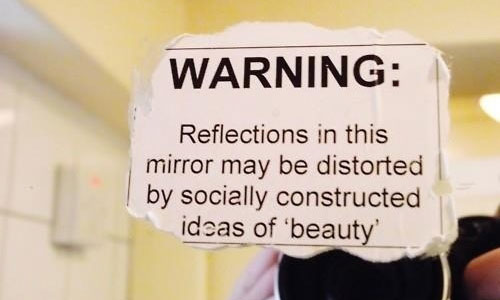Body image at Millikin

The pushback in recent years against media body standards has caused many to come to terms with their bodies. At a recent body image discussion in the Fireplace room of lower RTUC, Marlina Zimmerman led the discussion about how people can become more confident about their body image.
The event began with Zimmerman sharing her own story of finding the body acceptance movement, and some stories that nearly everyone could relate to about high school self-esteem issues and failed diets. Zimmerman wasn’t alone, and with every chair filled, the women in the room were quick to add their support, sharing their own stories of being self-conscious and comparing themselves to other women.
Zimmerman showed several videos meant to strike up conversation, the first, “What men are tired of hearing about their bodies,” was a snapshot of criticisms that men often face for being too short, too skinny or anything else that could follow the phrase, “you’re not a man if…”
The group also watched the version of the video that was made for women. This video was much more upbeat, the crowd noticed, and had more support for women taking control of the narrative and taking control of their body.
There were also a lot of good statistics shared with the group, for example, 80 percent of 10 year old girls are scared of getting fat, and nearly 60 percent of girls aged 14-18 are trying to lose weight.
Although the event was attended entirely by women, Zimmerman did a great job of including the other sex in the discussion. However the group agreed that when it came to body image, it was a topic that was mostly championed by women, for women.
“Men aren’t usually as open to talking their bodies are women,” said one attendee.
Even though men also suffer because of the way the media portrays the ideal man, few men speak out about the unfairness of the portrayals.
One of the most eye opening parts of the night was the discussion about what the word fat was associated with. When a person is called fat, they are usually being called lazy, undesirable. The word isn’t a descriptor like saying that someone has blond hair, dark skin or green eyes. Instead the word is seen as an insult.
“People call you fat, but you aren’t fat. Just in the same way that you aren’t fingernails. You have fingernails, but that’s not your identity.” Zimmerman said.
The group also discussed other videos, commercials which used slim, attractive women to sell their product, and how we thought that would affect the young girls who see it. Some felt very effected by the commercials, as though they were being put down because they don’t look like those on the screens. Others shared a different opinion, that the commercials had little effect on them.
“That’s great!” said Zimmerman, “I wanted to show how some people are more comfortable with their body, and how these things don’t affect them, but can have a big impact on others.”
At the end of the night, the group talked about how to encourage a positive body image. The women shared stories of feeling self-conscious about their body, but at times being surprised and impressed at what it could handle and do.
“Our bodies aren’t meant to be looked at, it’s for doing,” on attendee said.
The final note of the night was something that everyone agreed with, “You are not your body, you are your talents and your mind.”
Even with that, the importance of feeling comfortable and confident in your skin is what makes discussions and events like this one, so important.
